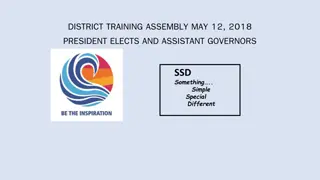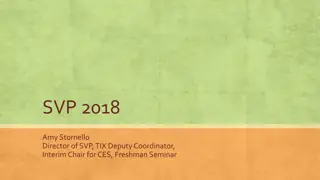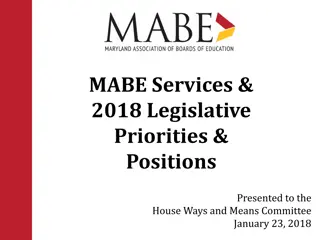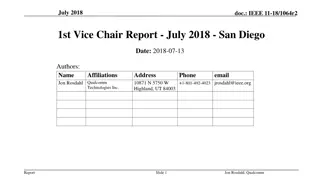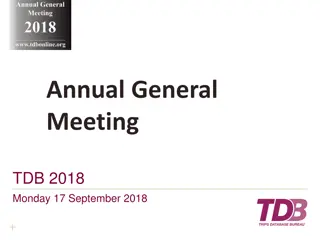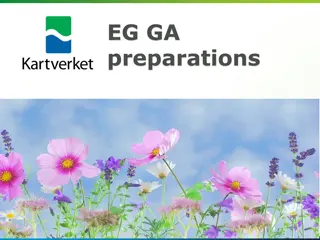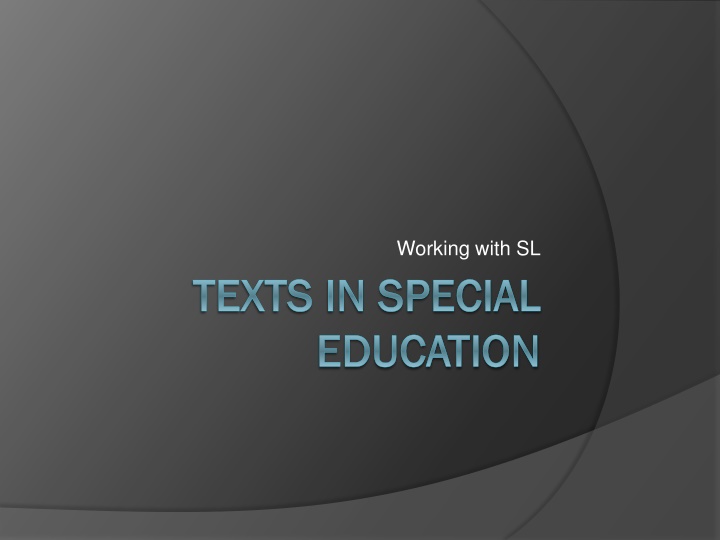
Effective Strategies for Working with Slow Learners in Special Education
Learn valuable tips for working with slow learners in special education settings, including reducing distractions, emphasizing strengths, providing variety in academic routine, and making learning fun and comfortable. Encourage communication and create a positive learning environment for the best results.
Download Presentation

Please find below an Image/Link to download the presentation.
The content on the website is provided AS IS for your information and personal use only. It may not be sold, licensed, or shared on other websites without obtaining consent from the author. If you encounter any issues during the download, it is possible that the publisher has removed the file from their server.
You are allowed to download the files provided on this website for personal or commercial use, subject to the condition that they are used lawfully. All files are the property of their respective owners.
The content on the website is provided AS IS for your information and personal use only. It may not be sold, licensed, or shared on other websites without obtaining consent from the author.
E N D
Presentation Transcript
Working with SL TEXTS IN SPECIAL TEXTS IN SPECIAL EDUCATION EDUCATION
WORKING WITH SLOW LEARNERS Reduce distractions by providing a quiet, private place to work. Emphasize strengths. Use lots of praise and reinforcementfrequently. Make lessons short. Limit the working time and have several short work periods rather than one long one.
Add variety to the academic routine. Do active things and use educational games, puzzles, and other techniques as much as possible. Work on material challenging but allows success. Work that is too hard or too easy is a turn-off. that is somewhat
Make learning fun and comfortable. Your positive attitude is very important. Encourage your child to talk to you. Ask what he did in school. Ask what was the best part of his/her day. Ask questions about the TV shows he/she watches. Talk about what he/she has heard, done, and plans to do.




